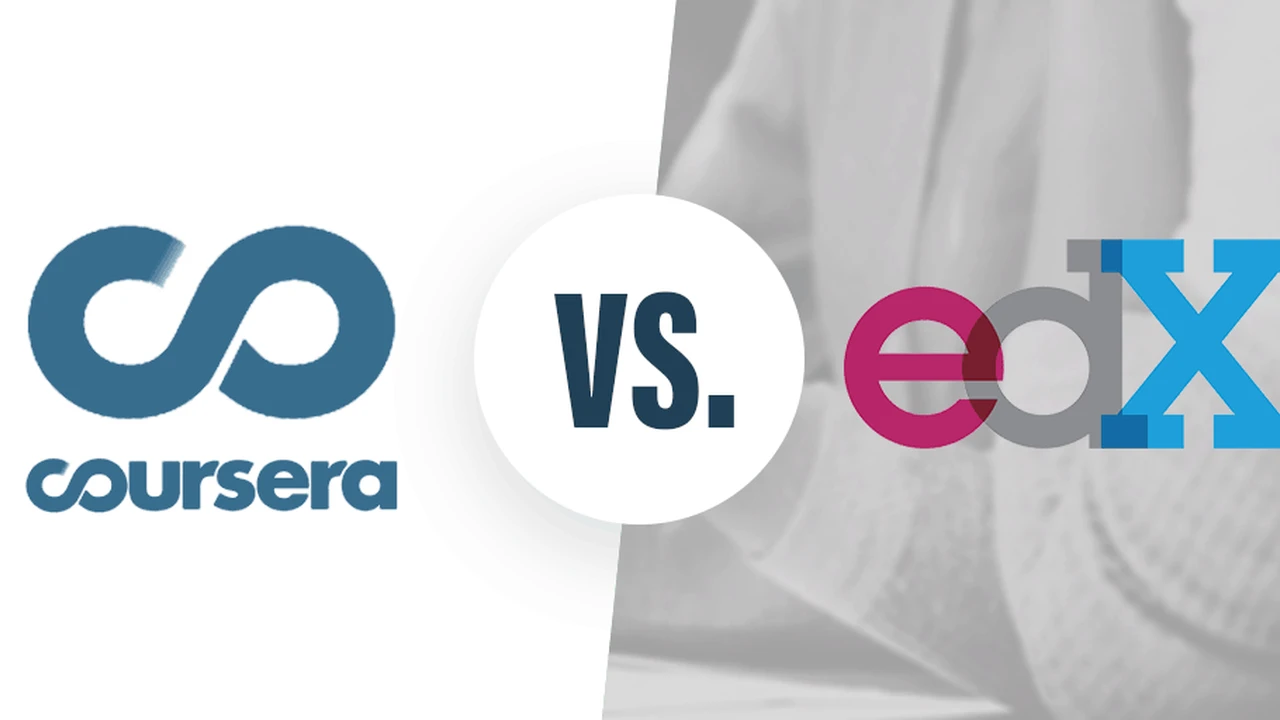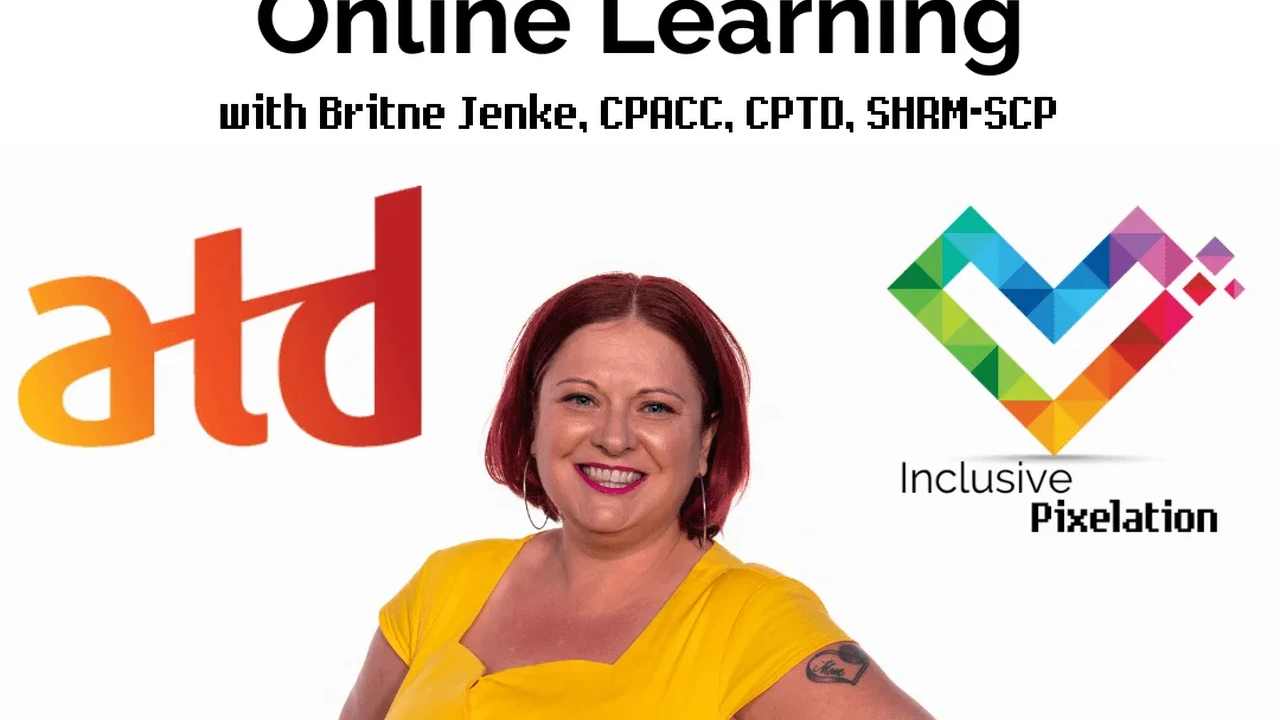Coursera vs edX Which is Better for Online Degrees
A head-to-head comparison of Coursera and edX for online degree programs. Find out which platform suits your academic needs.

A head-to-head comparison of Coursera and edX for online degree programs. Find out which platform suits your academic needs.
Coursera vs edX Which is Better for Online Degrees
Alright, let's dive into the big question for anyone eyeing an online degree: Coursera or edX? Both are massive open online course (MOOC) providers that have seriously upped their game, moving beyond just short courses to offer full-blown, accredited online degrees. It's a pretty sweet deal if you're looking to boost your career or switch paths without hitting pause on your life. But picking the right platform can feel a bit like choosing between two equally delicious flavors of ice cream – both are good, but one might just hit that sweet spot for you. We're going to break down everything you need to know, from the types of degrees they offer to the learning experience, costs, and even some specific program recommendations. So, grab a coffee, and let's figure out which one is your academic soulmate.
Understanding the Online Degree Landscape Key Considerations
Before we get into the nitty-gritty of Coursera and edX, let's talk about what really matters when you're looking at online degrees. It's not just about the platform; it's about what you want to get out of it. Think about these points:
- Accreditation and Recognition: This is huge. An online degree is only as good as the institution behind it. Both Coursera and edX partner with top-tier universities, so generally, you're in good hands. But always double-check the specific university offering your program and its accreditation status.
- Program Offerings and Specializations: Do they have the degree you want? And does it offer the specific specialization or focus areas that align with your career goals? Some platforms might be stronger in tech, others in business, and so on.
- Learning Format and Flexibility: How is the course delivered? Is it self-paced, or are there strict deadlines? Do they use video lectures, interactive assignments, live sessions? Your learning style plays a big role here.
- Cost and Financial Aid: Online degrees can be more affordable than traditional ones, but they're still an investment. Look at the total cost, payment plans, and any financial aid or scholarship opportunities.
- Career Support and Outcomes: What kind of career services do they offer? Do they help with job placement, resume building, or interview prep? Ultimately, you're doing this for career advancement, right?
- Student Support and Community: Even though it's online, you don't want to feel isolated. Look for platforms that foster a sense of community and offer good student support.
Coursera Online Degrees A Deep Dive into Programs and Features
Coursera has really made a name for itself in the online education space, and their degree offerings are no exception. They've teamed up with some seriously prestigious universities worldwide, bringing a diverse range of programs right to your screen. Let's break down what makes Coursera tick for online degrees.
Coursera's Program Portfolio Diverse Online Degree Options
Coursera boasts a pretty impressive catalog of online degrees, covering everything from computer science and data science to business, public health, and even some humanities. You'll find both Bachelor's and Master's degrees, and they're constantly adding new programs. What's cool is that many of these degrees are built upon their existing Specializations and Professional Certificates, meaning you can often 'stack' your learning – start with a certificate, and if you love it, apply those credits towards a full degree. This modular approach offers a lot of flexibility.
Key Program Areas on Coursera:
- Computer Science & IT: Think Master of Computer Science, Master of Science in Data Science, or even Bachelor's in Computer Science. Universities like the University of Illinois Urbana-Champaign (UIUC) and Arizona State University are big players here.
- Business & Management: You'll find various MBA programs, Master of Science in Management, and specialized business degrees from institutions like HEC Paris and the University of Michigan.
- Public Health & Healthcare: Master of Public Health (MPH) programs are popular, often from universities like Imperial College London or the University of Michigan.
- Data Science & Analytics: This is a huge growth area, and Coursera has many options, including degrees from the University of Colorado Boulder and the University of Michigan.
The Coursera Learning Experience Flexibility and Engagement
Coursera's learning experience for degrees is generally designed to be flexible, catering to working professionals and those with busy schedules. Most degree programs are self-paced within a structured weekly framework, meaning you have deadlines for assignments but can often watch lectures and complete readings on your own time. They use a mix of pre-recorded video lectures, readings, quizzes, peer-graded assignments, and discussion forums. Some programs also incorporate live sessions or office hours with instructors.
Key Features of Coursera's Learning Environment:
- Interactive Content: Videos often include embedded quizzes to check understanding.
- Peer Learning: Discussion forums are a big part of the experience, allowing students to interact and learn from each other.
- Capstone Projects: Many degrees culminate in a capstone project, allowing you to apply your knowledge to real-world problems.
- Mobile Accessibility: You can access course materials on the go via their mobile app.
Cost and Financial Aid on Coursera Online Degrees
The cost of a Coursera online degree can vary significantly depending on the university and the program. Generally, they are more affordable than their on-campus counterparts, but they are still a substantial investment. Prices can range from around $15,000 for some Bachelor's degrees to upwards of $40,000-$60,000 for Master's degrees, especially from top-tier institutions. For example, the Master of Computer Science from UIUC is around $21,000, while the iMBA from UIUC is about $24,000. The Master of Applied Data Science from the University of Michigan is approximately $33,000.
Financial Aid Options:
- Payment Plans: Many programs offer installment payment plans.
- Scholarships: Some universities offer scholarships specifically for their online degree programs.
- Employer Sponsorship: It's worth checking if your employer offers tuition reimbursement.
- Federal Student Aid: For eligible US students, federal financial aid might be available for certain programs.
Specific Coursera Online Degree Recommendations and Use Cases
Let's look at a couple of popular Coursera degree programs and who they might be best for:
1. University of Illinois Urbana-Champaign (UIUC) Master of Computer Science (MCS-DS)
- Use Case: Ideal for professionals looking to advance their careers in data science, machine learning, or software engineering. It's a rigorous program from a top-ranked CS department.
- Features: Offers specializations in Data Science, Machine Learning, and Software Engineering. The curriculum is identical to the on-campus program.
- Estimated Cost: Around $21,000.
- Why it's great: High academic rigor, strong reputation, and a relatively affordable price point for a top-tier CS degree.
2. HEC Paris Online Master in Innovation and Entrepreneurship (OMIE)
- Use Case: Perfect for aspiring entrepreneurs, startup founders, or professionals looking to drive innovation within established companies.
- Features: Focuses on developing entrepreneurial skills, business model innovation, and leadership. Includes a capstone project where you develop your own venture.
- Estimated Cost: Approximately €20,000 (around $21,500 USD).
- Why it's great: From a globally recognized business school, practical focus, and strong networking opportunities.
3. Arizona State University (ASU) Bachelor of Science in Computer Science
- Use Case: Great for individuals looking to start a career in computer science or those seeking a career change into tech.
- Features: Comprehensive curriculum covering fundamental CS concepts, programming, algorithms, and software development.
- Estimated Cost: Around $15,000 - $20,000 per year (total cost varies by pace).
- Why it's great: A well-regarded university, flexible online format, and a solid foundation for a tech career.
edX Online Degrees Exploring Programs and Platform Advantages
Now, let's shift our focus to edX. Founded by Harvard and MIT, edX has always had a strong academic pedigree. Like Coursera, they've expanded significantly into offering full online degrees, often called 'MicroBachelors' and 'MicroMasters' programs that can stack into full degrees, as well as complete Bachelor's and Master's degrees.
edX's Degree Portfolio Academic Excellence and Specialization
edX's degree offerings tend to lean heavily into STEM fields, particularly computer science, data science, and engineering, given its founding institutions. However, they also have strong programs in business, public health, and other areas. Their 'Micro' credentials are a unique selling point, allowing students to earn university-backed certifications that can then be applied towards a full degree, providing a lower-cost, lower-commitment entry point.
Key Program Areas on edX:
- Computer Science & Data Science: You'll find numerous Master's degrees from institutions like Georgia Tech (OMSCS), UT Austin, and MIT.
- Engineering: Strong offerings in various engineering disciplines, often from top engineering schools.
- Business & Management: MBA programs and specialized business degrees from universities like Boston University and Indiana University.
- Public Health: Master of Public Health programs are also available.
The edX Learning Experience Structured and Rigorous
The edX learning experience for degrees is often characterized by its structured and rigorous approach, reflecting the academic standards of its partner universities. While there's still flexibility, many programs have more defined start and end dates for courses, similar to a traditional academic semester. The content typically includes high-quality video lectures, readings, problem sets, coding assignments, and proctored exams.
Key Features of edX's Learning Environment:
- High-Quality Content: Direct access to course materials from world-renowned professors.
- Proctored Exams: Many degree programs require proctored exams to ensure academic integrity.
- Interactive Labs and Projects: Especially in STEM fields, hands-on projects and virtual labs are common.
- Discussion Forums: Active forums for student interaction and instructor support.
Cost and Financial Aid on edX Online Degrees
Similar to Coursera, edX degree costs vary widely. The MicroBachelors and MicroMasters programs are generally more affordable, often costing a few hundred to a couple of thousand dollars, and these credits can then be applied to a full degree. Full Bachelor's and Master's degrees can range from around $10,000 to $60,000 or more, depending on the university and program. For instance, the Georgia Tech Online Master of Science in Computer Science (OMSCS) is famously affordable at around $10,000, while other programs might be significantly higher.
Financial Aid Options:
- Payment Plans: Available for many programs.
- Scholarships: Some universities offer scholarships for their edX-based online degrees.
- Employer Sponsorship: Another avenue to explore for funding.
- Federal Student Aid: For eligible US students, federal aid can apply to certain degree programs.
Specific edX Online Degree Recommendations and Use Cases
Let's highlight a few standout edX degree programs:
1. Georgia Institute of Technology (Georgia Tech) Online Master of Science in Computer Science (OMSCS)
- Use Case: The gold standard for affordable, high-quality online CS education. Perfect for software engineers, data scientists, or anyone looking for a rigorous, top-tier CS Master's.
- Features: Identical curriculum to the on-campus program, offering specializations in Computing Systems, Interactive Intelligence, and Machine Learning.
- Estimated Cost: Approximately $10,000.
- Why it's great: Unbeatable value for a top-10 CS program, highly respected in the industry.
2. University of Texas at Austin (UT Austin) Master of Science in Computer Science (MSCSO)
- Use Case: Another excellent option for CS professionals, offering a slightly different curriculum focus than OMSCS, often with more emphasis on theoretical foundations.
- Features: Strong faculty, flexible course selection, and a focus on advanced topics in computer science.
- Estimated Cost: Around $10,000.
- Why it's great: Another highly-ranked CS program at an incredibly competitive price point.
3. Boston University (BU) Master of Science in Computer Information Systems (MSCIS)
- Use Case: Ideal for individuals looking for a blend of technical IT skills and business acumen. Great for those aiming for roles like IT project manager, systems analyst, or cybersecurity specialist.
- Features: Offers various concentrations including Data Analytics, IT Project Management, and Security.
- Estimated Cost: Approximately $24,000.
- Why it's great: A well-rounded program from a reputable university, bridging the gap between tech and business.
Coursera vs edX A Head-to-Head Comparison for Online Degrees
Okay, so we've looked at each platform individually. Now, let's put them side-by-side to help you make that final decision. Remember, there's no single 'best' platform; it's all about what fits your needs.
Program Variety and Specializations Coursera vs edX Offerings
- Coursera: Tends to have a broader range of subjects, including more options in humanities, social sciences, and creative fields, alongside strong STEM and business programs. Their 'stackable' model with Specializations and Professional Certificates leading into degrees is a significant advantage for those who want to test the waters.
- edX: While also diverse, edX often has a slightly stronger emphasis on STEM (Science, Technology, Engineering, Math) fields, particularly computer science and data science, reflecting its MIT and Harvard roots. Their MicroBachelors and MicroMasters are excellent for focused skill development that can articulate into a full degree.
Learning Flexibility and Structure Coursera vs edX Approaches
- Coursera: Generally offers more flexibility with self-paced learning within weekly deadlines. This can be great for those with unpredictable schedules. The emphasis on peer interaction and discussion forums is strong.
- edX: Often has a more structured, semester-like approach with fixed start and end dates for courses. This can provide more discipline and a traditional academic feel. Many programs feature proctored exams, which some might find more rigorous.
Cost and Value Proposition Coursera vs edX Pricing Models
- Coursera: Degree costs are competitive, often ranging from $15,000 to $60,000+. The ability to earn certificates that count towards a degree can be a cost-effective way to start.
- edX: Can offer some incredibly affordable options, notably the Georgia Tech OMSCS at around $10,000. Their MicroBachelors and MicroMasters are also very cost-effective entry points. However, other full degrees can also reach higher price points.
University Partnerships and Accreditation Coursera vs edX Institutions
- Coursera: Partners with a vast network of universities globally, including top-tier institutions like UIUC, University of Michigan, HEC Paris, and Imperial College London.
- edX: Also boasts an impressive roster of partners, including its founders Harvard and MIT, along with Georgia Tech, UT Austin, Boston University, and many others. Both platforms ensure degrees are accredited by the offering university.
Career Support and Outcomes Coursera vs edX for Job Seekers
- Coursera: Many degree programs on Coursera include career services, such as resume reviews, interview prep, and access to career networks. The focus is often on practical skills that are immediately applicable in the job market.
- edX: Career support varies by program and university. Some programs, like the Georgia Tech OMSCS, have strong alumni networks and career services tied to the university itself. The MicroMasters programs are often designed to directly enhance career skills.
Choosing Your Path Making the Right Online Degree Decision
So, how do you make the final call between Coursera and edX for your online degree? It really boils down to your personal circumstances, learning preferences, and career aspirations.
Choose Coursera if:
- You value maximum flexibility and a more self-paced learning environment.
- You're interested in a broader range of subjects, including humanities or more interdisciplinary fields.
- You like the idea of 'stackable' credentials, starting with a certificate and potentially progressing to a full degree.
- You prefer a learning experience with a strong emphasis on peer interaction and discussion.
Choose edX if:
- You're looking for highly structured programs with clear academic timelines, similar to a traditional university semester.
- Your primary interest is in STEM fields, especially computer science, data science, or engineering, where edX has some incredibly strong and affordable options.
- You appreciate the academic rigor often associated with proctored exams and a more traditional assessment style.
- You're interested in MicroBachelors or MicroMasters programs as a stepping stone or for focused skill development.
Ultimately, both Coursera and edX offer fantastic opportunities to earn accredited online degrees from reputable universities. The best approach is to:
- Identify Your Goals: What degree do you want? What career outcome are you aiming for?
- Research Specific Programs: Don't just look at the platform; dive into the actual degree programs offered by the universities on each platform. Check their curriculum, faculty, and alumni success stories.
- Consider Your Learning Style: Are you self-disciplined enough for a highly flexible program, or do you need more structure?
- Evaluate the Cost: Compare the total cost, payment options, and potential financial aid for your top choices on both platforms.
- Read Reviews: Look for reviews from current and past students of the specific programs you're considering.
No matter which platform you lean towards, the world of online degrees is brimming with possibilities. With careful research and a clear understanding of your own needs, you're well on your way to making an informed decision that will propel your career forward. Happy learning!
:max_bytes(150000):strip_icc()/277019-baked-pork-chops-with-cream-of-mushroom-soup-DDMFS-beauty-4x3-BG-7505-5762b731cf30447d9cbbbbbf387beafa.jpg)






